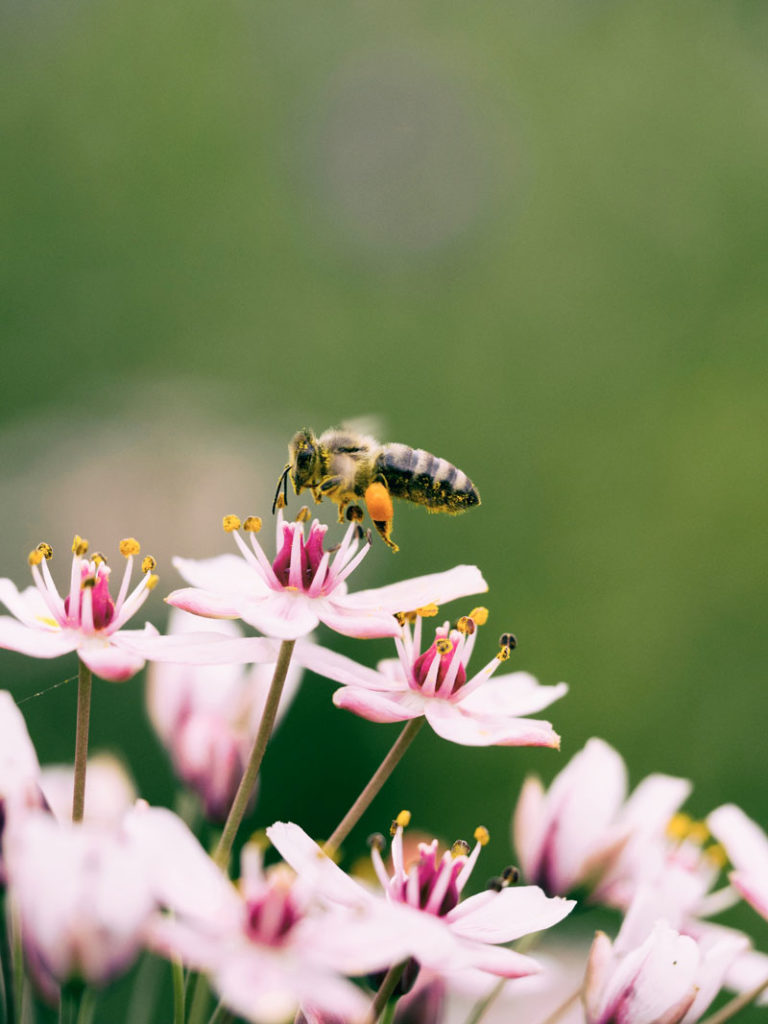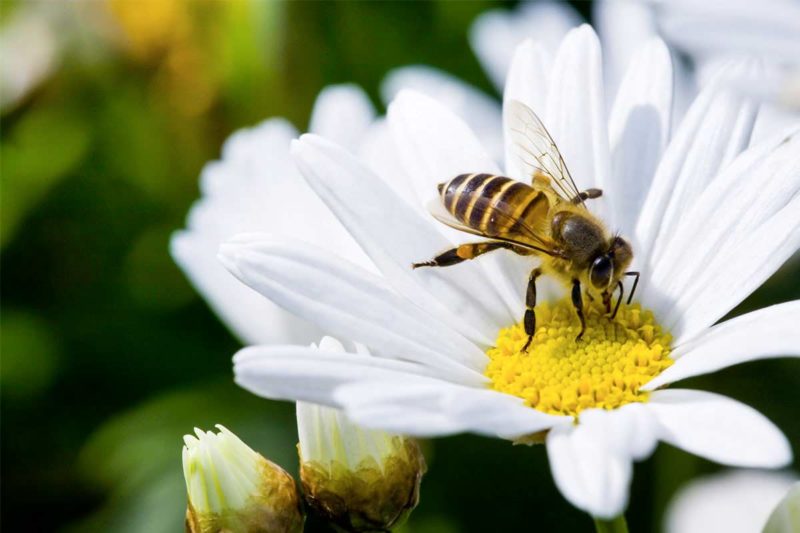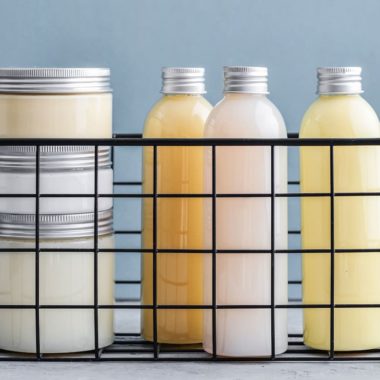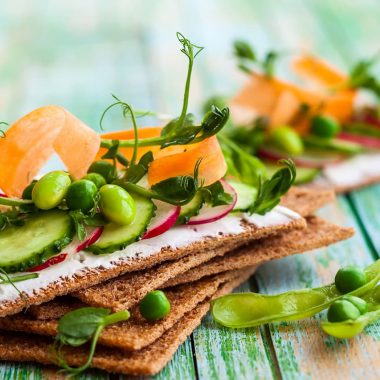Why, out of the many endangered animal species, does the cause of bees gain so much traction? Well, because they play a primordial role for humankind and the environment. On their shoulders, or rather their wings, these pollinating insects carry the responsibility for an array of ecological processes that are vital to ecosystems, farming and other animals.
Let’s review what you know about bees (pollination pros!). For reproduction to take place, male pollen must get to the female part of the plant or flower, and the wind is not enough to make that happen. As it happens, while bees are busy gathering their nectar they get loaded up with this pollen, which they transfer to the next flowers that they land on, thus making it possible for plants – and crops – to reproduce. Pollinating insects pollinate some 80% of all flowering and cultivated plants. Without them, a great many crops would not be able to grow. It is thought that around a third of our food depends on the role played by bees. We really need them! It’s a case of total co-dependency: without bees there can be no flowers, and without flowers there can be no more bees, since they feed on their nectar. That’s why safeguarding biodiversity is so important.
No bees = no fruit = no seeds

Bees are essential to fruit and vegetable production. If they don’t do the rounds, fruit gets atrophied and less plentiful. Bees bring us most fruit and vegetable species, such as courgettes, strawberries, melons, apples, pears, raspberries, grapes, turnips, sweet potatoes, peas and beans, and also the seeds of carrots, onions, walnuts, salad leaves and cabbage, as well as those of “major crops” like oilseeds, linseeds and sunflower seeds.
Bees also optimise the production of plant matter for animals that are farmed for meat, like rapeseed, which has a lower yield when pollinated by the wind alone. Bees secure our food supply in a big way. This point is even more stark if we extend the scope to spices and aromatic herbs, coffee, cotton and cocoa: crops with high added value. Bees play a role for free that’s pretty much irreplaceable and worth billions !
No bees = no animal habitats
While bees help produce animal feed, and foster the development of plants and trees, from tropical forests to European woodland, they also provide homes for insects, birds and small rodents like squirrels. Bees make it possible for a great many species – as well as our own – to thrive. They shore up biodiversity, and the fewer bees there are, the fewer plants there are, and the more ecosystems get depleted, leaving small animals without shelter or food. Moreover, bees are food for a great many bird and insect species like spiders and dragonflies. They are an important link in the food chain.
What’s the difference between honey bees and wild bees?
While bees that make honey are excellent pollinators, wild bees are even more effective for certain plants like cherry trees for example. They are sometimes even the only ones able to pollinate certain species. This makes wild bees even more precious, and their declining population unfortunately forces farmers into “hiring” honey bee colonies to keep their plantations going and harvest fruit. Which is why it’s worth protecting them, as urbanisation leaves them (like so many other species) without their natural habitat and the resources that they need to live.
Bees under threat from pesticides and global warming
The big enemies of bees are first and foremost neonicotinoid pesticides, which kill whole bee colonies, leaving beekeepers with empty hives. The alarm was raised and saw the European Union ban three of these products, but there are still a great many permitted pesticides which wreak havoc, especially on domestic bees. In second place on the list of bees’ enemies is climate chaos which kills them indirectly. When blossoming season is delayed, bees find themselves without food for overly-long periods. This is why in China, those working the fields resort to pollinating by hand using pollen shipped in from other regions.
Our food supply depends on bees. Without them we would start to run out of food, and plant and animal species would be under threat. Yet bees are in jeopardy and are dying in their thousands all over the world. Luckily, a great many associations have lent traction to the cause, and companies are also getting involved in the safeguarding of bees.
Private citizens, too, can take action by planting melliferous flowers all over, whenever possible, both at the roadside and on balconies, with ready-to-sew mixes, which sometimes come in the form of balls to be thrown into the natural environment.
It’s up to us to take action and especially to teach our children to safeguard these precious busy bees.







